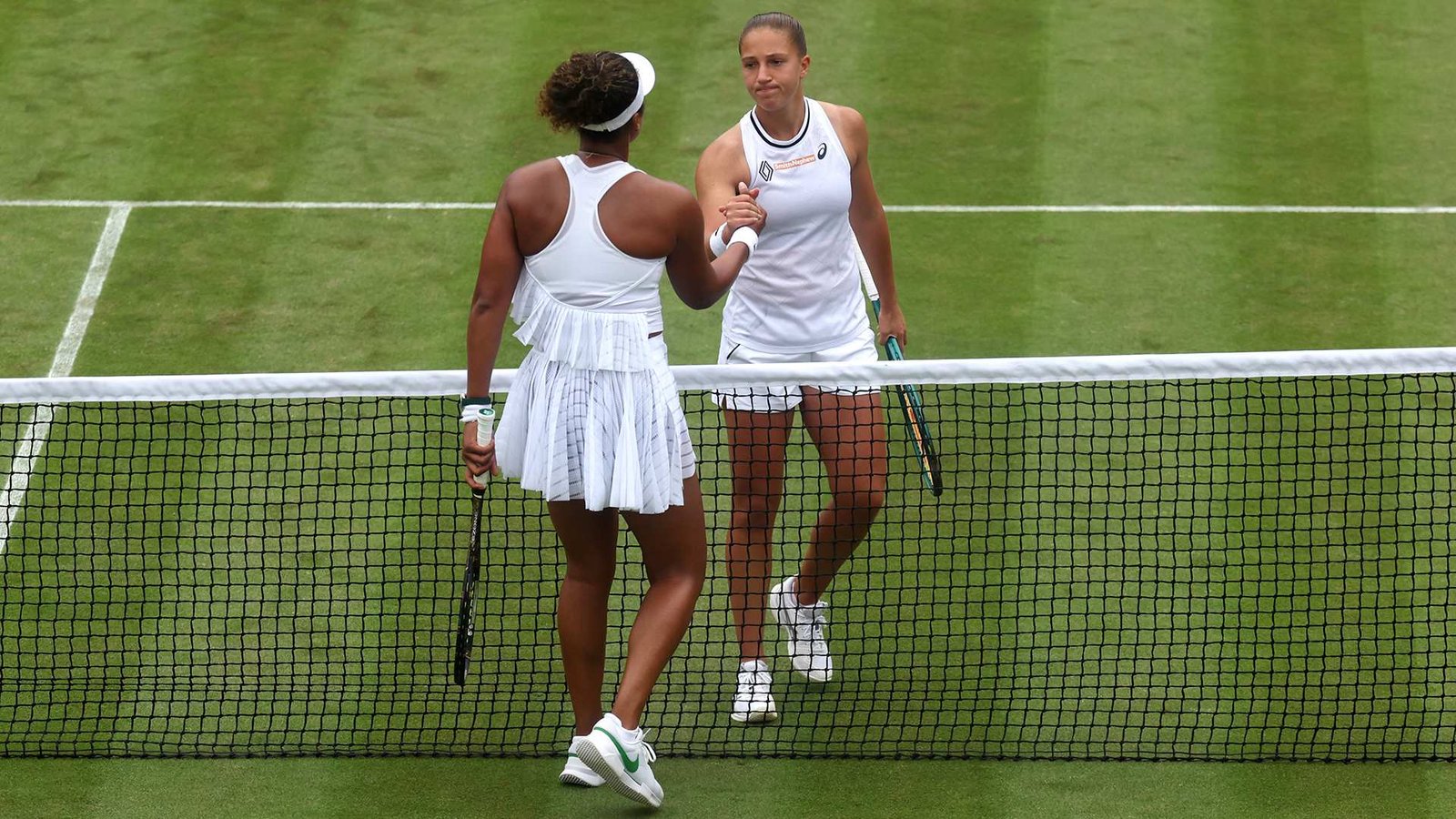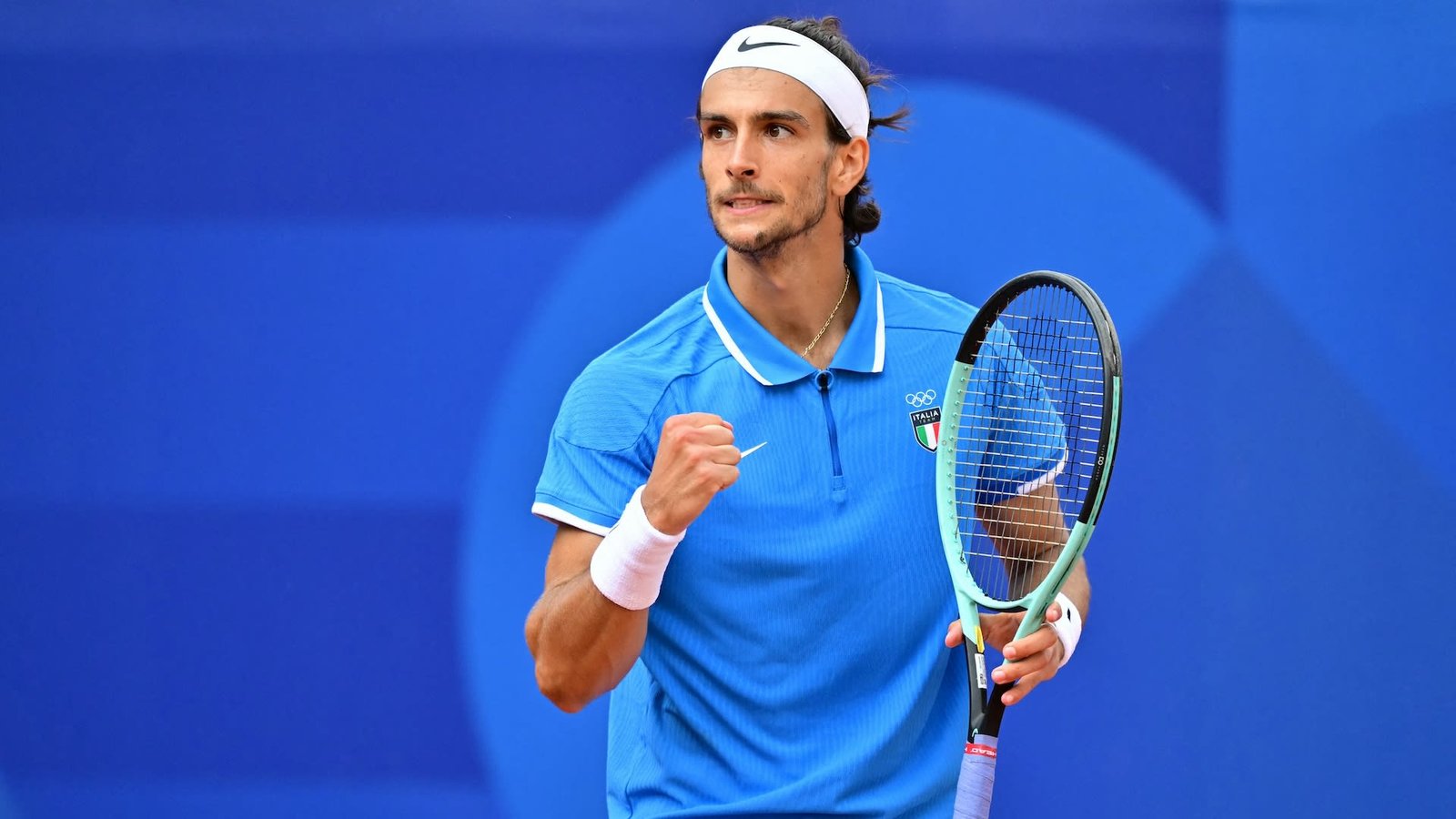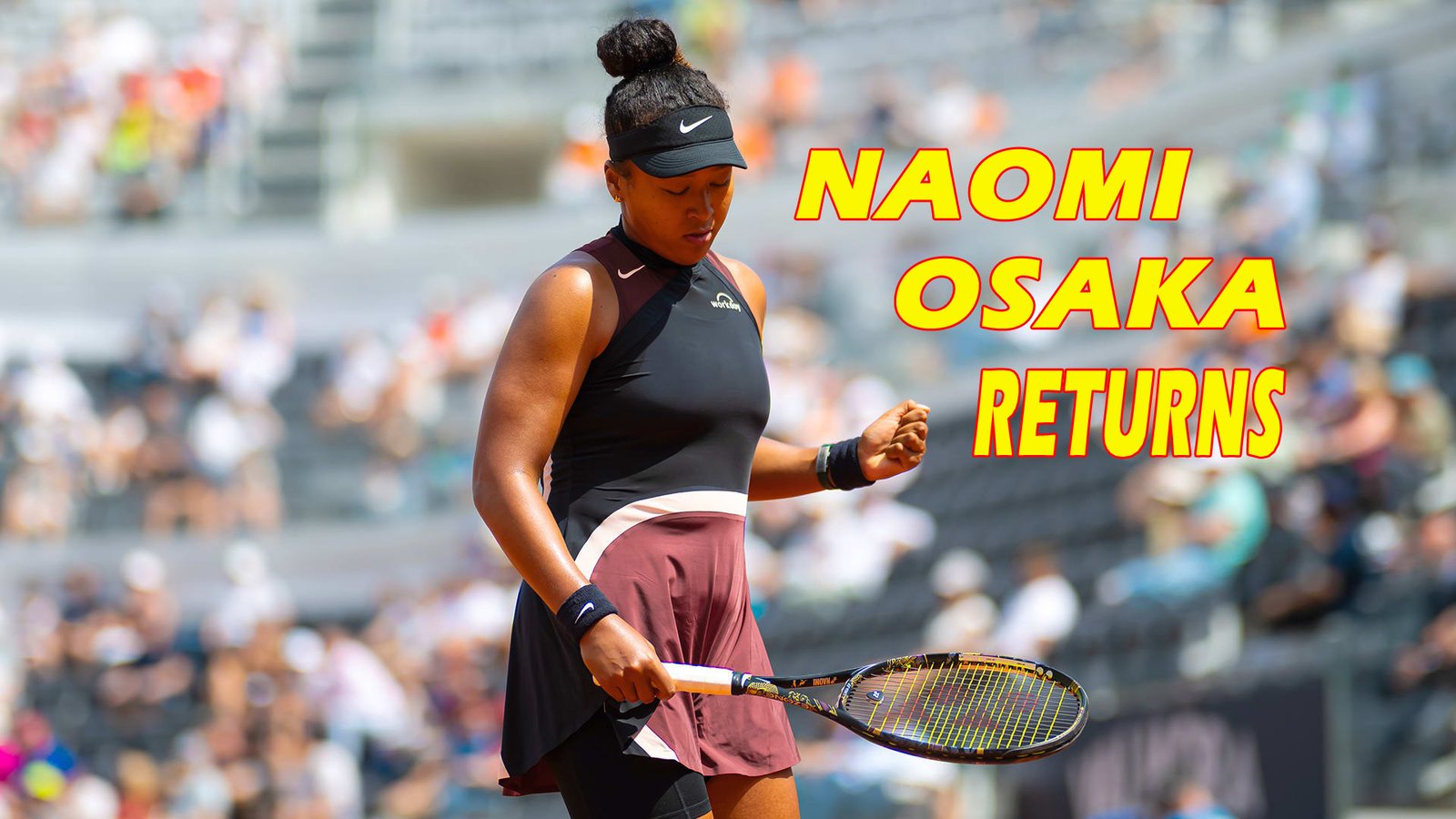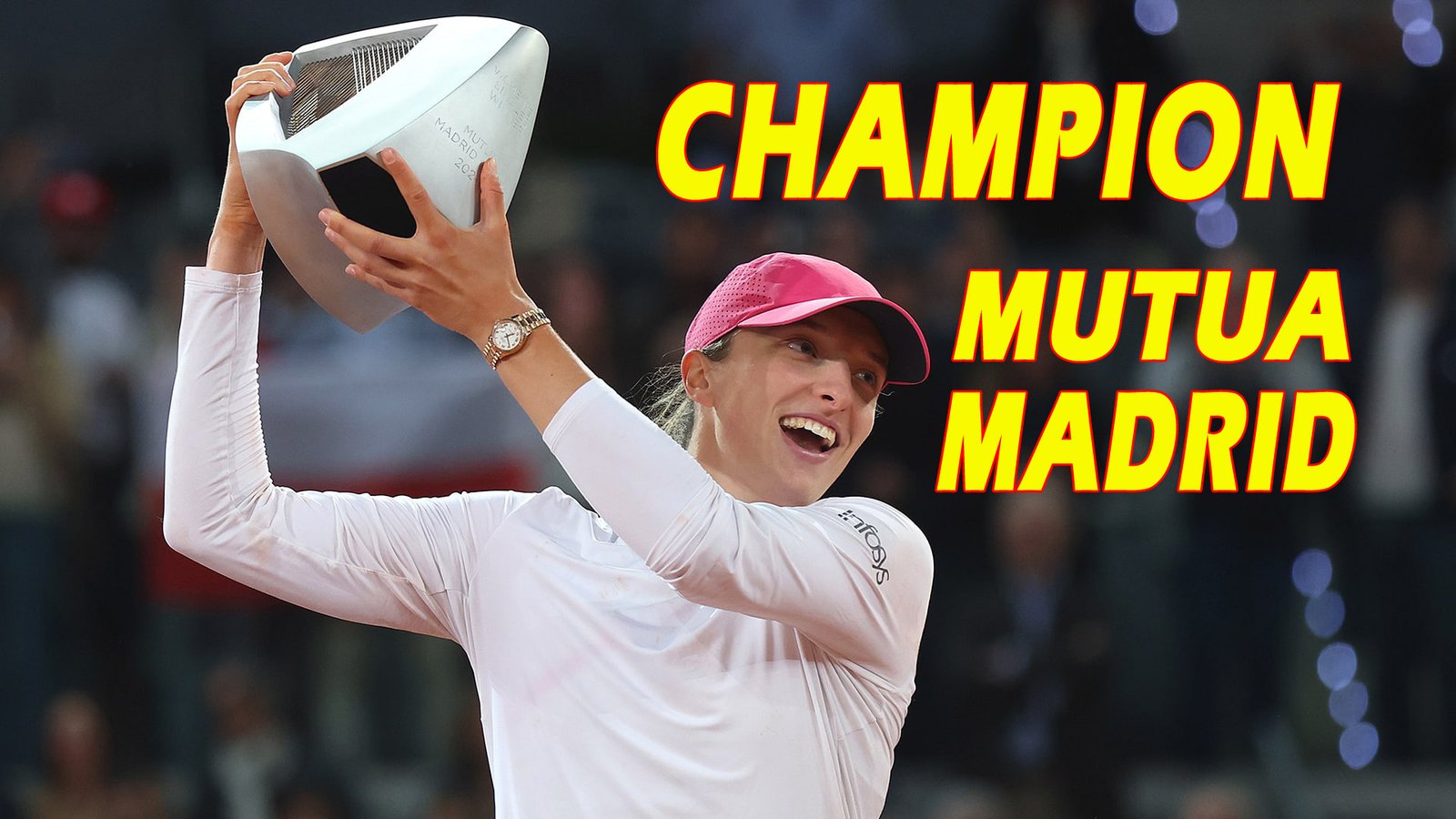Andrey Rublev demonstrated his tenacity and skill by overcoming Felix Auger-Aliassime in an epic showdown at the Mutua Madrid Open to claim the coveted Madrid title.
This victory marks Rublev’s second ATP Masters 1000 title on clay and boosts his career record to 2-3 in such finals.
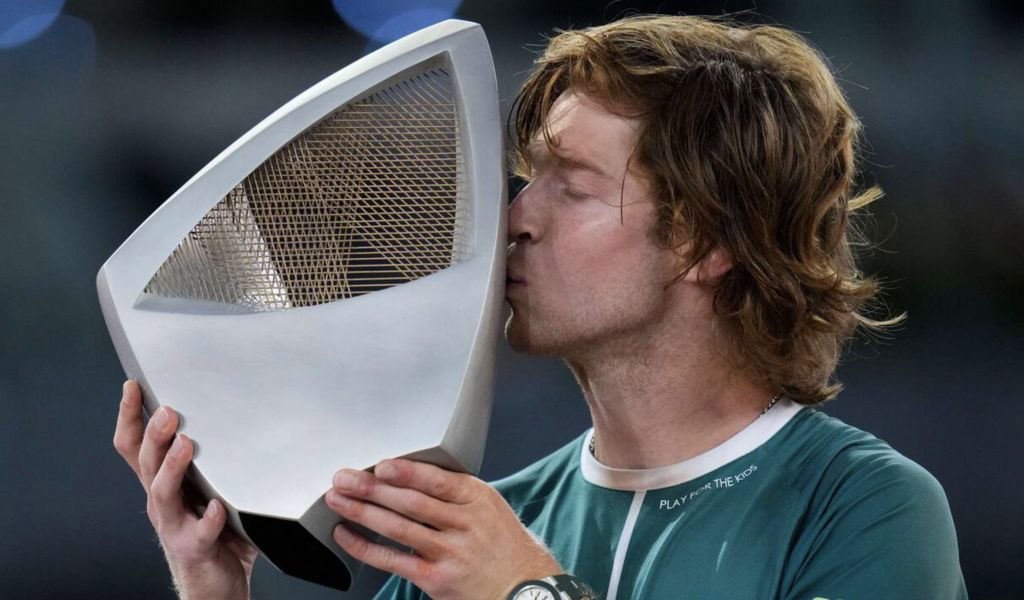
The men’s final, which included two somewhat unexpected finalists, Felix Auger-Aliassime and Andrey Rublev, nearly followed the three-hour-long, tiebreak final set of the Mutua Madrid Open women’s match, which featured world No. 1 Iga Swiatek and world No. 1 Aryna Sabalenka. Seventh-seeded Rublev emerged victorious from the Caja Magica with his second career ATP Masters 1000 title after two hours and forty-eight minutes of play, winning 4-6, 7-5, 7-5.
Former world No. 6 Auger-Aliassime, who was unseeded but had shown signs of resurgence, had a shortened path to his first career Masters 1000 final after two retirements and a walkover, the latter against No. 1 seed and Australian Open champion Jannik Sinner. And at the beginning of the match, it appeared as though he might have the physical advantage once more. Against a muted Rublev, who double-failed on the opening two points of the game, the Canadian jumped out to a quick 4-1 lead.
Rublev stated that this was not a part of his playing strategy after the game. In reality, earlier in the week, he had been on the verge of pulling out of the competition due to a health issue and subsequently inflammation in one of his fingers.
“If you knew what I’ve been through the last nine days, you would not imagine that I would be able to win a title,” Rublev stated. “Everything changes in a week. In the first round, I was losing the final six weeks.
“I have to give the physicians all the credit; I was [almost] ready to withdraw because of a few problems that I couldn’t resolve. They have a magical quality. Because of what they were doing, I was at least able to participate. They’re the greatest of the entire tour that I’ve had thus far.”
But much as his health did throughout the course of the week, Rublev’s advantage against Auger-Aliassime gradually grew. Rublev’s energy level increased as the match went on, and he seized his chance in the second set. In the first eleven games, neither man’s serve was seriously threatened—Auger-Aliassime saved the lone break point that each faced in the sixth game—but in the 12th, the Canadian could not pull off an escape.
The Canadian had to withstand constant pressure from Rublev in the third set, as well as a betrayal from his own body. Despite not receiving an official medical timeout, he was attended to during two consecutive changeovers and saved the first five break points he faced, which were two in the first 12-minute service game, two more when down 2-1, and one more in the eighth game.
He failed to save a sixth, though. In the twelfth game, Auger-Aliassime ended a lengthy rally with a backhand long, but she was unable to stop Rublev’s unrelenting attack from the back of the court. He then committed a double fault, trying to hit a second serve that went wide, giving Rublev the victory.
Rublev had not won consecutive sets since his contentious default from the semifinals of the Dubai Duty Free Tennis Championships on March 1, and he came into Madrid on a four-match losing streak.
Also Read: The Intense Showdown Between Iga Swiatek and Aryna Sabalenka at Mutua Madrid Open 2024
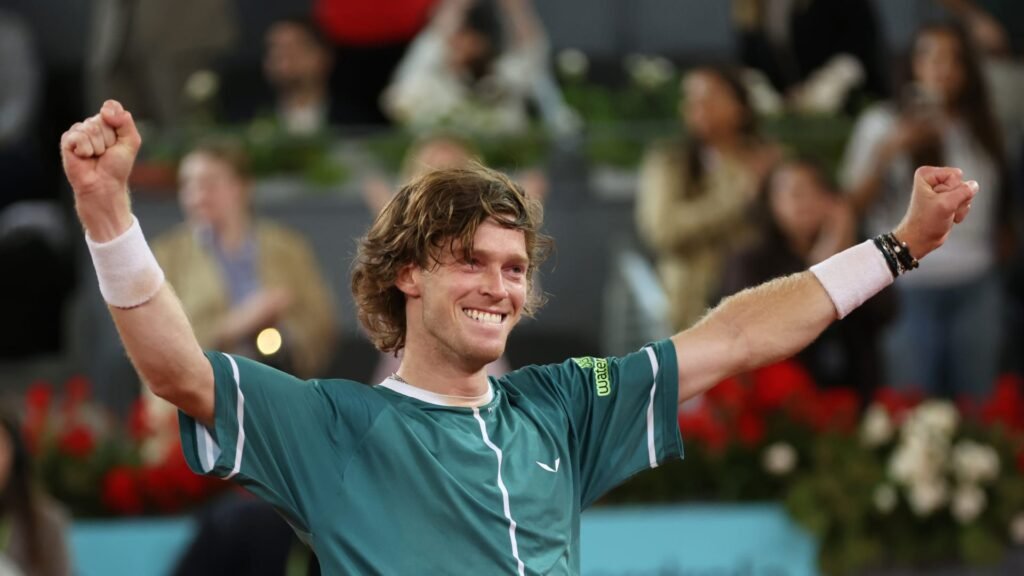
Andrey Rublev Triumphs Against Adversity in Madrid: A Tale of Resilience
Rublev remained composed and defeated them all, whether it was Felix Auger-Aliassime’s 14 aces, Carlos Alcaraz, or an unidentified sickness.
When you watch Andrey Rublev play, you may occasionally ask yourself why he seems to be going insane.
“Alright, so you blew an easy shot, lost a break, or missed a forehand, but is that really a good excuse to beat yourself up with your racquet until you bleed?”
On Sunday in Madrid, though, it became somewhat more understandable how the Russian’s growing annoyance at Felix Auger-Aliassime was being shown. The majority of the final two and a half sets saw Rublev build leads on Auger-Aliassime’s service games after he had given himself an early two-break deficit.
However, he was unable to stop the Canadian from wiping them out with aces, service winners, or, on a few occasions, groundstrokes that clipped the outside of the sideline. In a match of this magnitude, any player who misses eight out of eleven break points would have been begging the tennis gods to grant him a break, just as Rublev did.
What was particularly annoying was that Rublev was the better player whenever a rally got going, despite his 1-4 start. He regularly held his own when serving. Several of his returns were blasted home within a foot of the baseline. He made winning passes out of his reflexes and took hard-hit balls off the short hop. He made Auger Aliassime’s unsteady backhand visible. Auger-Aliassime won just 36 of his second-serve points, compared to his 60%.
Auger-Aliassime persevered until the very end of the final two sets, mainly thanks to 14 aces. But every time he served at five or six, he broke. He was broken in the second set after making three groundstroke mistakes. He twice double-failed in the third set, the second time at match point, with the title on the line. After experiencing increasing anxiety, Rublev was pleased to accept the gift and win his second Masters 1000 title with a 4-6, 7-5, and 7-5 score.
“The proudest title I’ve ever had,” Rublev remarked.
There are several explanations for Rublev’s statement. First of all, he said that the past ten days had been physically taxing. He had a mysterious disease, maybe angina, that left his fingers and feet so inflamed that he was unable to put on shoes and made it “impossible to swallow, impossible to eat, and headache because of it.” He could only play with a schedule of injections and pills.
“Those doctors are magicians,” Rublev remarked.
And then there was the cerebral task. After being defaulted for unsportsmanlike behavior in Dubai at the beginning of March, Rublev had gone 1-4 in the two months that followed. This was a remarkable decline for someone who had qualified for the quarterfinals of the Australian Open to begin the season.
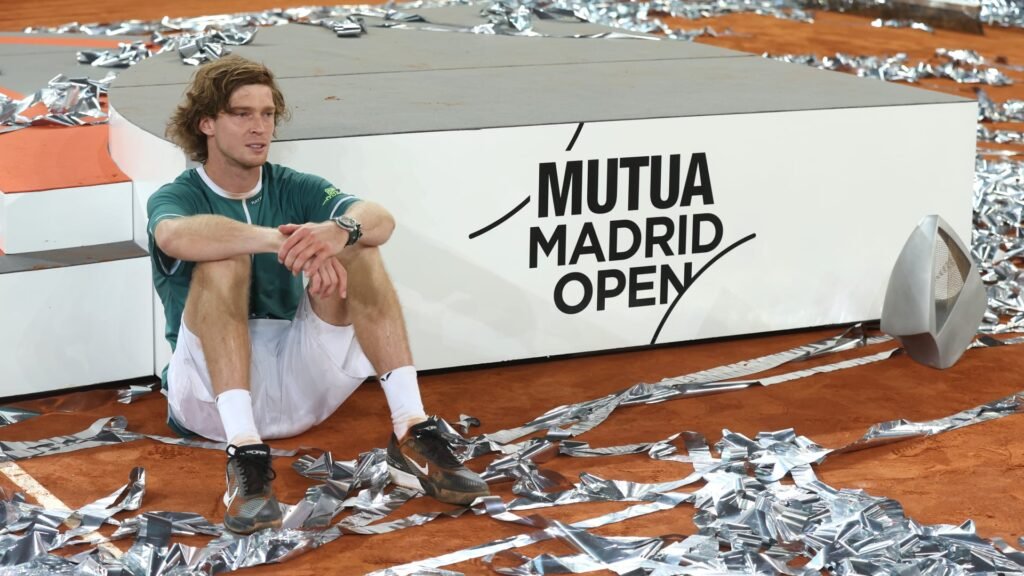
But in Madrid, when he broke Carlos Alcaraz’s two-year winning streak and showed clutch play in the championship game, everything came together for him.
Clutch and composed: Rublev never lost his cool, even when he was shutting down Alcaraz or seeing Auger-Aliassime’s aces sail by him. He was questioned on Friday: Has Dubai altered him?
He remarked, “It’s a tough question.” “I’ve already received a ton of warnings in life, if you can call them that, telling me to be more composed. I was fortunate that things turned out nicely since there were other occasions, not just with Dubai, when I was on the verge of doing something bad.
It is my hope that the reason for my improvement is not the ‘warnings,’ but rather that I am improving. I’d like to think that I’m the one who is becoming better.
For whatever reason, Rublev proved to himself this week what he is capable of when he maintains composure.
Rublev remained composed and overcame all obstacles, including Carlos Alcaraz, an unexplained illness, a two-month dry spell, and 14 aces from his opponent in the championship match.

